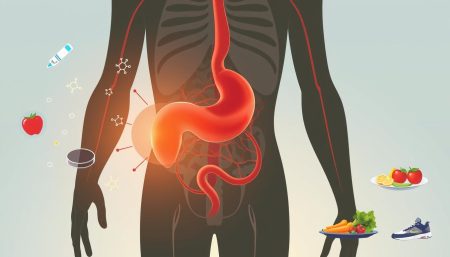Living with insulin dependent diabetes mellitus is challenging. It needs a detailed approach to treatment and managing the condition. This includes keeping an eye on blood sugar levels and focusing on overall health.
This guide will help you understand the key parts of diabetes treatment. It aims to help you live a full life while managing your diabetes well.
In this guide, you’ll find strategies and tips for better managing your condition. It’s not just about taking medicine. It’s about making lifestyle changes, choosing the right foods, and staying up-to-date with new diabetes care methods.
Understanding Insulin Dependent Diabetes Mellitus
Insulin dependent diabetes mellitus, also known as type 1 diabetes, happens when the body doesn’t make enough insulin. This is because the pancreas doesn’t work right. Keeping blood sugar levels balanced is key for staying healthy.
Defining Type 1 Diabetes and its Causes
Type 1 diabetes occurs when the immune system attacks and destroys insulin-making cells in the pancreas. This stops insulin from working, which is needed for glucose to enter cells for energy. It’s thought that genes and viruses might start this immune attack.
Differences Between Type 1 and Type 2 Diabetes
Type 1 diabetes means the body can’t make insulin at all. But type 2 diabetes is when cells don’t respond to insulin or the pancreas can’t make enough. Knowing the difference is important for treatment and managing the disease.
Understanding these differences helps patients and caregivers find better ways to manage their condition. But, it’s also important to know about overall health, like Body Mass Index (BMI). You can check your BMI with this quick BMI calculator.
Strategies for Effective Blood Sugar Management
Managing blood sugar is key for those on insulin therapy. It keeps them healthy and avoids serious problems. Diet and exercise are the main ways to control blood sugar and improve insulin use.
The Role of Diet in Regulating Blood Sugar
Eating right is vital for blood sugar control. A diet rich in low glycemic index foods helps keep blood sugar stable. These foods release glucose slowly, helping to keep blood sugar levels even all day.
Here are several key dietary strategies:
- Eat a mix of carbs, proteins, and fats to keep blood sugar steady.
- Choose whole grains over refined carbs to avoid big blood sugar jumps.
- Add lots of non-starchy veggies to your diet without raising blood sugar too much.
- Watch your portion sizes to avoid eating too much and upsetting your blood sugar.
Exercise Considerations for Insulin Sensitivity
Exercise is also key for managing blood sugar. It helps keep you at a healthy weight and makes your body use insulin better. This means your body can lower blood sugar levels more efficiently.
Here are some exercises good for insulin therapy patients:
- Aerobic activities like walking, swimming, or cycling boost heart health and lower blood sugar.
- Resistance training, like weight lifting, builds muscle that helps absorb glucose.
- Flexibility exercises, like yoga or stretching, improve mobility and reduce stress, which helps with glucose control.
| Exercise Type | Benefits for Blood Sugar | Recommended Frequency |
|---|---|---|
| Aerobic | Decreases blood sugar immediately | 3-5 times per week |
| Resistance | Improves insulin sensitivity | 2-3 times per week |
| Flexibility | Reduced stress levels can lower blood sugar variance | Daily |
Overview of Insulin Therapy in Diabetes Treatment
Insulin therapy is key for managing Type 1 and many Type 2 diabetes cases. It’s important to know the different insulin types and how to use insulin injections correctly. This knowledge helps manage diabetes effectively.
Types of Insulin and Their Purposes
Insulin is divided into types based on how fast it works and how long it lasts in the body. The main types are:
- Rapid-acting insulin starts working in 15 minutes. It’s great for controlling blood sugar spikes during meals.
- Short-acting insulin takes 30 minutes to start working. It covers insulin needs for meals eaten within 30 minutes.
- Intermediate-acting insulin lasts about half the day or overnight. It acts as a baseline insulin.
- Long-acting insulin lasts up to 24 hours. It keeps glucose levels stable through the day and night.
Choosing the right insulin depends on your health needs, lifestyle, and meal patterns.
Understanding Insulin Dosage and Timing
Finding the right insulin dosage and timing is critical for managing diabetes. The dosage changes based on blood sugar levels, what you eat, and exercise. Usually, insulin is given just before a meal to control blood glucose spikes from eating.
In conclusion, managing diabetes well requires a structured insulin injection plan. It’s important to understand the types of insulin and follow the prescribed timing and dosages. Working closely with healthcare providers is essential to tailor insulin therapy to your needs. This ensures effective and safe diabetes management.
Monitoring Techniques for Insulin Dependent Diabetes Mellitus
To manage insulin dependent diabetes well, using many monitoring techniques is key. This helps control blood sugar and improve insulin therapy. Regular checks of blood glucose levels can greatly improve life quality and stop serious problems later.
The Importance of Regular Blood Glucose Testing
Testing blood glucose often is vital for managing insulin dependent diabetes. It lets patients and doctors make smart choices about insulin and diet.
Traditional blood glucose meters and continuous glucose monitoring (CGM) systems are common today. Each gives important data but works differently.
| Monitoring Method | Features | Advantages | Considerations |
|---|---|---|---|
| Traditional Blood Glucose Meters | Periodic testing using blood samples | Cost-effective, widely available | Requires frequent lancet use |
| Continuous Glucose Monitoring Systems | Real-time glucose monitoring | Provides detailed glucose trends, cuts down on finger-sticking | More expensive upfront, might need calibration |
In today’s healthcare, focusing on accurate and frequent testing is key. It helps avoid serious issues and helps manage blood sugar well. Creating a testing routine can greatly help those with insulin therapy every day.
Daily Routines to Manage Insulin Dependent Diabetes Mellitus
Creating a daily routine is key for managing diabetes. It’s a big part of managing chronic conditions. A good diabetes care plan helps keep blood sugar stable and lowers the risk of diabetes problems.
Creating a Diabetes Care Schedule
A good diabetes care schedule covers many daily tasks. It makes sure all important actions are done on time. Here’s what a daily routine might include:
- Medication Timing: Taking insulin and other medicines as prescribed.
- Nutritional Planning: Planning meals and snacks to keep blood sugar in check.
- Physical Activity: Exercising regularly to improve insulin use and health.
- Blood Glucose Monitoring: Testing blood sugar often to adjust diet and activities.
Below is a sample daily care schedule for managing insulin dependent diabetes well.
| Time | Activity | Purpose |
|---|---|---|
| 7:00 AM | Check blood glucose | Monitor and record fasting sugar levels |
| 7:30 AM | Administer morning insulin | Maintain blood sugar control throughout the day |
| 8:00 AM | Breakfast | Balanced meal to start the day |
| 12:00 PM | Check blood glucose | Adjust midday meal insulin dosage |
| 12:30 PM | Lunch | Stabilize blood sugar with a nutritious meal |
| 5:00 PM | Physical activity | Increase insulin sensitivity, improve cardiovascular health |
| 6:30 PM | Check blood glucose | Pre-dinner sugar level assessment |
| 7:00 PM | Dinner | End the day with a well-rounded meal |
| 10:00 PM | Check blood glucose | Post-dinner sugar level monitoring and bedtime insulin adjustment |
Following a detailed schedule helps people with insulin dependent diabetes manage their condition. It improves their health and quality of life. It’s important to adjust routines as health needs change and based on doctor’s advice.
Innovations in Insulin Injection Methods
The world of insulin injections and diabetes treatment has changed a lot. New technologies aim to make life easier for people with diabetes. These include smart pens, wearable pumps, and systems that automatically deliver insulin.
Today’s insulin pens can remember how much insulin you’ve taken. This is key for managing diabetes. They also connect to apps on your phone. This lets you see your insulin use and track trends.
- Insulin pens for precise dose adjustment
- Wearable insulin pumps that continuously deliver insulin
- Closed loop systems that monitor and adjust insulin levels automatically
Smart insulin devices are a big step forward. They can adjust insulin based on your blood sugar levels right away. This could change how we treat diabetes, making it more like the body’s natural insulin.
These new systems are making a big difference in diabetes treatment. They help control blood sugar better and give people with diabetes more freedom and confidence.
Recognizing and Responding to Blood Sugar Extremes
Managing blood sugar is key for those with insulin dependent diabetes mellitus. Knowing the signs of blood sugar highs and lows is important. It helps keep life quality high and prevents serious health issues.
Handling Hypoglycemia: Signs and Treatment
Hypoglycemia, or low blood sugar, needs quick action. Signs include shakiness, confusion, and sweating. To treat it, eat fast-acting carbs like glucose tablets or juice.
It’s vital to keep an eye on blood sugar levels. This is even more important for those with insulin dependent diabetes mellitus.
Dealing with Hyperglycemia: Prevention and Correction
Hyperglycemia, or high blood sugar, is dangerous too. It can cause thirst, frequent urination, and tiredness. If you notice these signs, check your blood sugar right away.
To manage high blood sugar, adjust insulin doses and plan meals carefully. Adding more exercise, with doctor’s advice, can also help. Keeping blood sugar stable is a big part of managing insulin dependent diabetes mellitus.
- Maintain regular meal times: Consistency helps in stabilizing blood sugar levels.
- Monitor blood glucose: Regular checks allow for timely adjustments to insulin and diet.
- Understand personal triggers: Identifying specific factors that affect blood sugar can aid in better personal management.
Understanding and Preventing Diabetic Complications
Managing insulin-dependent diabetes needs careful attention and knowledge. It’s important to prevent long-term complications. These can include many health issues and can greatly affect your quality of life. Managing chronic conditions is key to avoiding these problems.
Long-Term Risks Associated with Insulin Dependent Diabetes
Diabetic complications can be severe. They include neuropathy, nephropathy, and retinopathy. These affect the nervous, kidney, and visual systems. They often come from high blood sugar levels over time. This shows why it’s vital to keep blood sugar in check.
Preventative Measures for Diabetic Complications
Managing chronic conditions involves several steps to prevent complications. Keeping blood sugar levels under control is essential. This can be done through medication, lifestyle changes, and regular doctor visits. Here are some strategies in a table:
| Complication | Preventative Strategy | Benefit |
|---|---|---|
| Neuropathy | Strict blood sugar control, regular foot exams | Reduces risk of nerve damage and associated pain |
| Nephropathy | Regular kidney function tests, maintaining blood pressure | Helps in early detection and delays progression of kidney disease |
| Retinopathy | Annual eye exams, control of glucose and blood pressure | Prevents or slows down loss of vision |
In summary, while diabetic complications are a big worry for those with insulin-dependent diabetes, managing chronic conditions can help a lot. Regular health checks, tailored care plans, and learning about your condition are all important. They help fight off and slow down these complications.
Importance of Healthcare Team in Managing Diabetes
In the journey of managing diabetes, a healthcare team plays a key role. Specialists like endocrinologists, diabetes educators, and dieticians are essential. They help improve the quality and effectiveness of your care. Let’s explore how they contribute to better diabetes treatment and management.
Your Endocrinologist’s Role in Diabetes Management
An endocrinologist is vital for managing diabetes well. They specialize in hormone-related disorders and oversee diabetes treatment. They diagnose diabetes types and stages and adjust insulin therapy as needed.
Regular visits with an endocrinologist are important. They provide personalized advice and adjust your treatment plan based on your needs and glucose levels.
Working with Diabetes Educators and Dieticians
Diabetes educators and dieticians offer vital support in managing diabetes daily. A diabetes educator teaches patients about their condition and how to manage it. They help learn how to monitor blood sugar and take action when needed.
Dieticians create personalized eating plans that focus on glucose control and nutrition. These plans are key to effective diabetes treatment.
Together, these professionals create a support network for people with diabetes. They empower individuals to live healthier lives. Regular interactions with your healthcare team offer personalized care and help prevent complications.
By embracing the team’s collective expertise, you can better manage diabetes daily. This ensures long-term well-being.
Technology’s Impact on Insulin Dependent Diabetes Management
In the world of managing diabetes, technology has made huge leaps forward. It has greatly improved insulin therapy. Now, new devices help patients take control of their health. They also make it easier to keep blood sugar levels in check.

Smart insulin pumps and continuous glucose monitoring (CGM) systems lead this tech change. They work together to automatically give insulin based on blood sugar levels. This makes managing diabetes easier and less stressful for people.
- Smart insulin pumps let you set basal rates that change all day.
- CGM systems give detailed glucose data, showing trends to avoid big blood sugar swings.
- Mobile apps linked to these devices let you check your health from anywhere. You can share data with doctors, too, for quick insulin therapy changes.
These new tools mark a big step towards more tailored and effective insulin therapy. They help people with diabetes live healthier lives. As technology keeps improving, we can expect even better ways to manage diabetes and insulin therapy in the future.
Support Systems and Coping Mechanisms for Those with Diabetes
Managing insulin dependent diabetes mellitus is more than just medicine. It involves social support and community involvement. Family, friends, and peer groups offer emotional and psychological help. This support is key to daily diabetes management.
Family, Friends, and Emotional Support
Having a strong family and friend network is vital for diabetes management. Emotional support from loved ones can reduce stress. It helps with daily tasks like monitoring blood sugar.
Family encouragement is also important. It helps keep a healthy diet and exercise routine. These are essential for managing diabetes well.
Joining Online Communities and Support Groups
Online communities and support groups are great for those with diabetes. They let people share their experiences and get advice. These digital spaces connect individuals facing similar challenges, creating a sense of community.
| Benefits of Support Systems | Examples |
|---|---|
| Emotional Resilience | Encouragement from family during glucose monitoring |
| Dietary Compliance | Family meals planned with dietary restrictions in mind |
| Exercise Motivation | Group exercises with friends |
| Management of Treatment | Reminders from friends to take insulin |
| Sharing Experience | Discussion forums in online diabetes communities |
Support from loved ones and online communities is essential for managing diabetes. This support helps with both practical and emotional aspects of diabetes care. It’s important for long-term health.
Insulin Dependent Diabetes Mellitus and Lifestyle Adaptations
Living with type 1 diabetes requires careful planning and active management. People can lead active, full lives by managing their diabetes well. This includes traveling and working or studying effectively.
Traveling with Diabetes: Tips and Precautions
Traveling with diabetes doesn’t have to stop you. With some planning, you can travel safely and enjoyably. Here are some tips for those with type 1 diabetes:
- Pack enough insulin and testing gear, with extras for emergencies.
- Adjust your insulin doses for time zone changes to keep your routine.
- Carry snacks to keep blood sugar levels stable during flights or delays.
Whether it’s a vacation or a business trip, these tips can make traveling easier and less stressful.
Diabetes Management in the Workplace and School
Workplaces and schools must be ready for daily care and emergencies. Here’s what’s needed:
| Setting | Daily Management | Emergency Preparedness |
|---|---|---|
| Workplace | Regular monitoring and private space for insulin therapy | Fast-acting glucose and a team ready to respond |
| School | Spaces for glucose checks and insulin shots | Training for peers and staff on hypoglycemia |
Having these adaptations in place helps with physical and mental health. It shows how important it is to manage diabetes well everywhere.
Managing Diabetes During Illness or Other Stressors
When you’re sick or under stress, managing your insulin dependent diabetes mellitus gets harder. Your body’s glucose levels can change a lot. This makes it key to find ways to keep your health in check.
It’s important to change your insulin plan when you’re not feeling well. Illnesses like infections can raise your blood sugar because of stress hormones. Other conditions might make you eat less, affecting your blood sugar and insulin needs.
- Monitor Blood Glucose More Frequently: Keep an eye on changes in your blood sugar, which can happen when you’re not eating much or have a fever.
- Adjust Insulin Dosages: If your blood sugar levels change, you might need to adjust your insulin. Always talk to your healthcare provider about this.
- Maintain Hydration: It’s easy to get dehydrated when your blood sugar is high, which is a big risk when you’re sick. Drinking more water helps control your sugar levels and prevents problems.
Stress, like big life events or feeling really upset, can also mess with your blood sugar management. Keep an eye on your blood sugar and insulin, and try stress-reducing activities like mindfulness or talking to a counselor.
| Stress Factor | Impact on Blood Sugar | Suggested Action |
|---|---|---|
| Infection or Fever | Rises | More frequent glucose testing, possibly increase insulin |
| Reduced Food Intake | Falls | Adjust insulin to prevent hypoglycemia |
| Emotional Distress | Variable | Use stress-reduction techniques, adjust insulin as needed |
It’s very important to manage your diabetes well during these times. This helps avoid serious problems like diabetic ketoacidosis, which is more common when you’re sick and have insulin dependent diabetes mellitus.
Financial Planning for Diabetes Care Expenses
Managing diabetes treatment and chronic condition management needs both medical and financial planning. The cost of ongoing diabetes care can be high. It’s important for patients and their families to know their financial options and plan well.
Healthcare costs for diabetes treatment vary a lot. They depend on the type of treatment, how often you see doctors, medications, and supplies like insulin and blood glucose monitoring kits. It’s key for those with diabetes to make a detailed budget that includes these costs.
- Review insurance coverage carefully to determine what aspects of diabetes care are covered and to what extent.
- Explore options for supplemental insurance if existing coverage is insufficient for the costs of necessary diabetes treatment supplies and medications.
- Investigate pharmaceutical assistance programs that may offer medications at a reduced cost.
- Consider contributions to a Health Savings Account (HSA) or Flexible Spending Account (FSA) to cover out-of-pocket expenses with pre-tax dollars.
Effective chronic condition management means knowing all financial resources. This includes state and federal programs that help those with diabetes. Planning for these expenses can greatly reduce financial stress and burden.
Legal Rights and Protections for People with Diabetes
People with type 1 diabetes face special challenges at work and school. It’s key to know the legal rights and protections they have. The Americans with Disabilities Act (ADA) is a big help here.
This law stops discrimination against people with disabilities. It makes sure those with type 1 diabetes get the same rights and chances as others. It’s important for everyone to learn about these rights.
The ADA says employers must make reasonable changes. This can mean taking breaks to check blood sugar, having a private spot for insulin shots, or eating a snack if sugar levels are low.
- Flexible work schedules
- Permission to work from home
- Modifications of policies and procedures
For students with diabetes, the IDEA helps a lot. It makes sure they get special education plans. These plans are key for their school success.
| Act | Main Protections |
|---|---|
| Americans with Disabilities Act (ADA) | Employment, education, public accommodations |
| Individuals with Disabilities Education Act (IDEA) | Educational plans and services |
Knowing about these laws helps fight discrimination and start important talks. It makes sure diabetes doesn’t stop people from reaching their goals in school and work.
Resources and Further Reading on Insulin Dependent Diabetes Mellitus
For those newly diagnosed or long-time warriors of insulin dependent diabetes mellitus, staying informed is key. Important resources go beyond the doctor’s office. They include research articles and educational materials that are very helpful.
Organizations like the American Diabetes Association (ADA) offer literature and supportive communities. They cover topics from the latest treatments to daily living with diabetes. These groups also send out newsletters with updates on diabetes care.
Scientific journals and reputable health websites are also great sources of information. They provide insights into how lifestyle choices and genetics affect diabetes. Learning about type 1 diabetes helps make informed decisions and stay proactive in managing it.
It’s important to follow credible sources and ensure their advice matches current medical guidelines. Working with healthcare professionals helps sort through information. Together, we can find the best resources for managing insulin dependent diabetes mellitus.
FAQ
Q: What is insulin dependent diabetes mellitus?
A: Insulin dependent diabetes mellitus, or type 1 diabetes, is a chronic condition. The pancreas doesn’t make enough insulin. Insulin is key for using glucose from food as energy.
Q: How is type 1 diabetes different from type 2 diabetes?
A: Type 1 diabetes means the body can’t make insulin. This is often because of an autoimmune response. Type 2 diabetes is about insulin resistance and not enough insulin production.
Q: Can lifestyle changes affect blood sugar management in type 1 diabetes?
A: Yes, lifestyle changes are key. Eating a balanced diet and knowing how carbs affect blood sugar are important. Regular exercise also helps manage blood sugar levels.
Q: What are the main types of insulin used in diabetes treatment?
A: There are several types of insulin. These include rapid-acting, short-acting, intermediate-acting, and long-acting. Each type is used differently based on individual needs and lifestyle.
Q: How important is consistent blood glucose testing in insulin therapy?
A: Testing blood glucose regularly is very important. It helps adjust insulin therapy and prevents complications from insulin dependent diabetes mellitus.
Q: Why is it necessary to create a daily diabetes care schedule?
A: A daily care schedule is essential. It helps manage medication, diet, exercise, and monitoring. This is key for keeping blood sugar levels stable and managing diabetes effectively.
Q: What advancements have been made in insulin injection methods?
A: New advancements include insulin pens, pumps, and smart insulin devices. These aim to make insulin administration easier and more efficient.
Q: How do you handle extreme blood sugar levels?
A: For low blood sugar, recognize symptoms and treat immediately with glucose tablets. For high blood sugar, understand signs and use strategies to prevent and correct it.
Q: What are the common long-term complications of type 1 diabetes?
A: Long-term complications include nerve damage, kidney disease, and eye damage. These often result from prolonged high blood sugar levels.
Q: How do healthcare professionals contribute to diabetes management?
A: Healthcare professionals, like endocrinologists, adjust insulin therapy. Diabetes educators and dieticians help with self-management and decision-making.
Q: How has technology changed the management of insulin dependent diabetes?
A: Technology has greatly improved diabetes management. Smart insulin pumps, continuous glucose monitoring systems, and apps help track and manage the condition better.
Q: Why are support systems important for individuals with diabetes?
A: Support from family, friends, online communities, and support groups is invaluable. They offer encouragement, share experiences, and provide advice for managing diabetes challenges.
Q: What are some lifestyle adaptions necessary for individuals with insulin dependent diabetes?
A: People with diabetes need to adapt. This includes planning for travel with extra medication and supplies. They also need to manage dietary and insulin needs at work or school.
Q: What should individuals with diabetes do when they are sick or stressed?
A: When sick or stressed, monitor blood sugar levels more often. Adjust insulin doses as needed. Always communicate with healthcare providers.
Q: How can one financially plan for diabetes care expenses?
A: Financial planning for diabetes care involves budgeting for expenses. Understand insurance coverages and explore financial assistance programs for medications and supplies.
Q: What legal protections exist for people with diabetes?
A: People with diabetes are protected by laws like the Americans with Disabilities Act (ADA). These ensure they get reasonable accommodations in employment, education, and public life.
Q: Where can I find more information about managing insulin dependent diabetes mellitus?
A: For more information, check out diabetes organizations, research articles, educational materials, and guidance from healthcare professionals specializing in diabetes care.


















